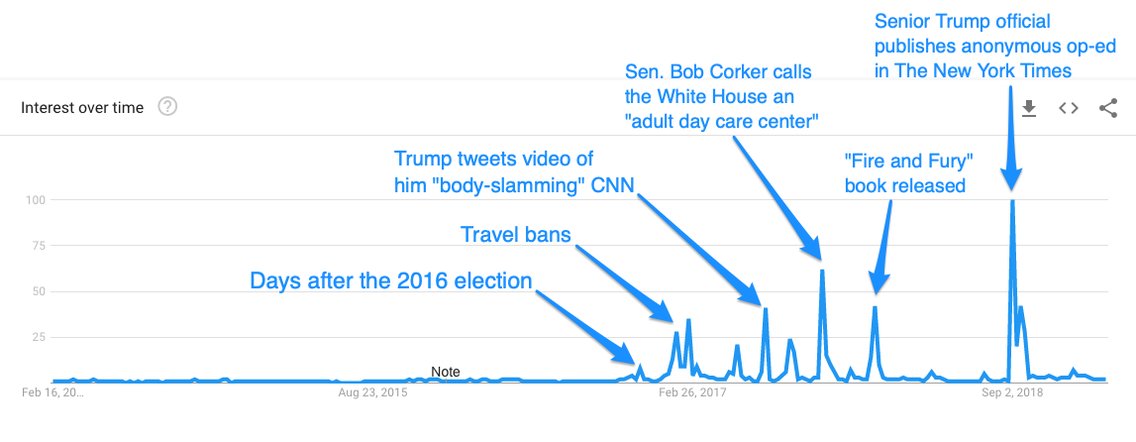
Revelations that officials in the Justice Department discussed the 25th Amendment and the president’s ability to lead has prompted some to suggest this was an act of treason or at least a bureaucratic coup.
So what exactly is the 25th Amendment? It’s been around for about 50 years and basically it explains what to do when the president can’t be president.
Section 4 of the 25th Amendment gives power to the vice president and Cabinet members to remove the president of the United States from office if he or she is physically or psychologically incapable of carrying out his or her duties.
The power has been invoked three times in the past — twice when George W. Bush was under anesthesia for colonoscopies and while Ronald Reagan had cancerous polyps removed. In all of these instances, the president voluntarily gave power to the vice president before going under anesthesia.
“The president has someone following him with a nuclear football, or codes for the nuclear football, at all times so you’ve got to have someone responsible for that,” said Donald Jackson, Ph.D., public policy professor at TCU.
McCabe’s remarks mark the first time influential government officials have openly discussed invoking the 25th Amendment without the president’s consent. If the president and Cabinet disagree about the president’s ability to serve, it would go to Congress to be voted on, with a two-thirds majority vote to remove the president from power. This has never happened, or come close to happening.
After the firing of FBI Director James Comey, a few things happened: Robert Mueller was appointed
McCabe spoke publicly about this conversation earlier this month saying that Deputy Attorney General Rod Rosenstein had even offered to wear a wire and secretly record his conversations with President Trump. Rosenstein and the Justice Department denied this claim multiple times.

Some critics of McCabe have compared this conversation to a “bureaucratic coup.”
Sen. Lindsey Graham, R-S.C., promised on CBS “Face the Nation” to “get to the bottom” of McCabe’s comments. Sen. Graham implied the conversation was an “attempted bureaucratic coup.”
Sen. Graham won’t find much to “get to the bottom” of in this case. As the 25th Amendment is part of the constitution, the discussion of invoking it isn’t a coup or considered unconstitutional. It was developed for that very reason. As individuals, the intelligence officials are granted the constitutional right to have that conversation.
“The process of considering whether the president is able to carry out his duties, that’s why we have the 25th Amendment, that’s why it was necessary. How can it be unconstitutional if it’s in the constitution?” said Dr. Jackson.
“The biggest abuse of power and corruption scandal in our history, and it’s much worse than we thought. Andrew McCabe (FBI) admitted to plotting a coup (government overthrow) when he was serving in the FBI, before he was fired for lying & leaking.” @seanhannity @FoxNews Treason!
— Donald J. Trump (@realDonaldTrump) February 19, 2019
The White House attacked McCabe’s character and credibility. One reason for the discussion of invoking the 25th Amendment cited his unorthodox focus on his Twitter, yet Trump took to Twitter to blast McCabe, calling him a disgrace to the FBI and the United States.

It is unlikely that the 25th Amendment would be invoked for Trump. While he takes an untraditional approach to the presidency that leads to some concerns, he isn’t physically or psychologically disabled to the point that he can’t do his job.
“I think the impeachment process is more likely than the 25th Amendment, because I don’t believe the president’s Cabinet would agree to suspend him from office,” said Dr. Jackson.
With the release of Muller’s report and the new testimony of Michael Cohen, Trump’s former attorney, there could be an actual possibility of impeachment, while there is no basis to invoke the 25th Amendment.






